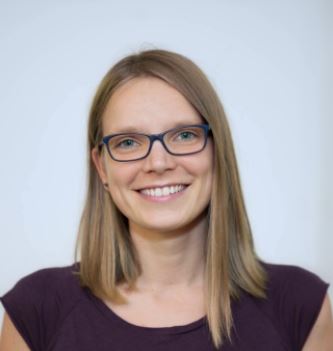Scientific Collaborator

Dr. Julia Chatain is a Senior Scientist at the Singapore-ETH Centre, responsible for the Future Embodied Learning Technologies (FELT) project. She collaborates with the Professorship for Learning Sciences and Higher Education (LSE) on a number of projects about embodied learning and math education. She supervises the "Achieving Adaptive Mathematics Knowledge through Embodied Causal Learning" project, funded by the Jacobs Foundation Young Scholar grant. Moreover, she co-leads the development of a mobile math learning app.
Julia completed her doctorate at the LSE lab and the Game Technology Center (GTC) of ETH Zurich, and received the "Outstanding Dissertation" ETH medal for this work. During her project, she studied how embodied interaction in Virtual Reality can be designed to support learning and grounding of abstract concepts of mathematics. In this work, she offered theoretical contributions, such as a novel interdisciplinary design framework for embodied learning activities in Virtual Reality, informed by perspectives from embodied cognition, embodied interaction, as well as avatar embodiment. Moreover, her work identified new approaches to embodied interaction design, beyond position and movement, such as muscle tension. Finally, her empirical evaluation of embodied learning of mathematics identified benefits for math anxious students as well as highly body aware students.
She received her Engineering Degree in Mathematics and Computer Science from École polytechnique (Paris, France) and her Master of Science in Computer Science and Image Processing from EPFL (Lausanne, Switzerland), with internships at Microsoft and Google. During her master thesis, in collaboration with the science center Cap Sciences (Bordeaux, France), she designed interactive technologies using Augmented Reality to help the Science Center visitors express themselves through drawings. Before joining ETH Zurich, she worked in a research team (Potioc, Inria, Bordeaux, France) where she focused on Human-Computer Interaction and developed various Augmented Reality technologies for groups in public spaces.
Besides her work at ETH Zurich, she organizes and supports events to introduce women to Computer Sciences and Mathematics, such as Django Girls. She was also part of GirlsCodeToo where she interviewed women in STEM to illustrate the diversity of people and opportunities in these fields, and, hopefully, inspire young girls and women to join.